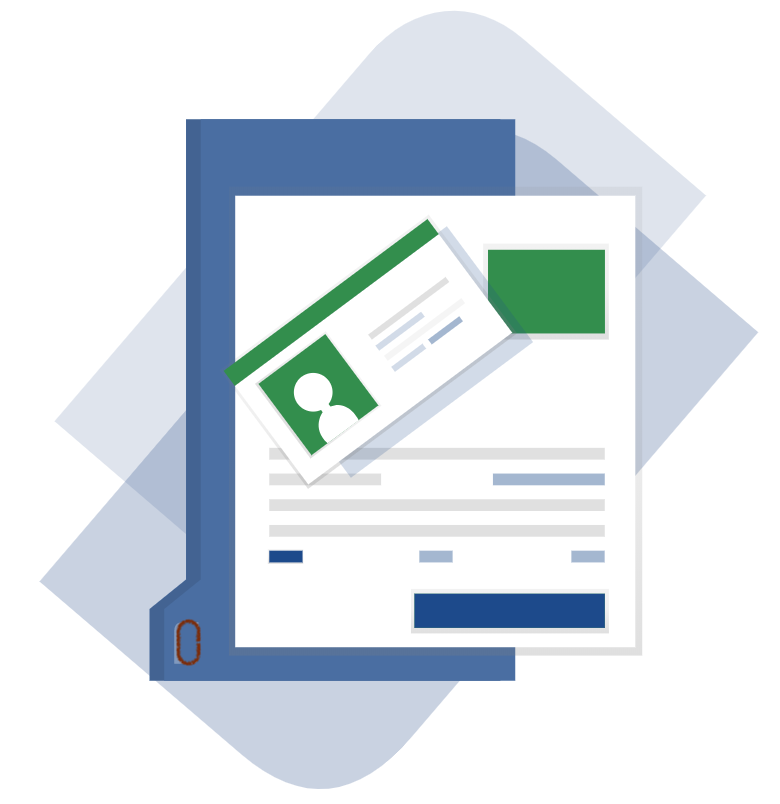A CV is a short document that allows you to showcase your greatest qualities to a potential employer. It advertises your talents and expertise, as well as demonstrates that you're the best candidate for the position.
In today's competitive employment market, making a strong first impression is crucial. Since your CV will be your initial point of contact with companies, it's critical that you get it correctly.
Your CV is the first chance you have to create a good impression when looking for a job, whether it's your first, the brand-new job, or advancement in the same firm.
We at Parhai Likhai recommend children/ students start making CVs at early ages and make a habit of building them up intermittently. Also, we would suggest exploring more personal pitching methods such as introductory videos, CV formats and there are tons of other
Also Read: Why Must We Embrace Growth Mindset!
Personal Details
A prospective boss will be able to call you as a result of this. To begin, your identity and phone numbers should be prominently displayed (email address, and street address). Because recruiters only spend around 30 seconds looking through your résumé, you'll want to make sure this crucial information jumps out.
A professional title conveys a clear understanding of the position you are seeking or have previously held and are thus qualified to fill. You should also provide your physical address and website information to assist companies in learning more about you immediately.
CV Title
What is the meaning of a CV title? Is it required to include a CV title? A CV title, often known as a CV headline, is a short phrase that emphasizes your skill and worth. If your CV has a powerful headline, employers are more inclined to read it.
We've compiled a list of CV title suggestions for job searchers of various statuses.
CV title with no experience - example: Nursing Graduate with Training experience in Acute Care
CV title with professional experience - example: 5 years of client service experience as a customer relations specialist.
A Personal Statement
One paragraph that immediately captures the attention of your reader and entices them to find out more about you. Be careful not to cram too much in. Make sure you offer yourself every opportunity to stay in the game by creating a CV that accurately represents you.
A brief personal statement (no more than 2-3 words) is a wonderful opportunity to show why you think you'd be a good match for the job, even if it's not required. Use any successes to write something particular that demonstrates how you offer value to a firm.
Also Read: Top 8 Factors That One Must Consider Before Choosing a Career!
Education and Qualifications
Give brief descriptions of your academic and professional qualifications, as well as the grades you received, in reverse chronological order. Include this information above any work experience if you're seeking your first job after leaving school.
Include your achievements as well as any other noteworthy accomplishments, such as health and safety certifications or first aid certifications. Anything relevant to the role you're seeking is a bonus.
Also Read: Homeschooling: Afterall Its Your Child's Future!
Skills
Finally, make a list of your most important abilities. This area of your CV is quite important. Your core skills section should primarily focus on your hard talents, but include your soft skills throughout your CV is a smart idea. Soft talents include things like time management and teamwork, whereas hard skills, such as data analysis or copywriting, are generally job-specific. Hard skills might include proficiency in things like:
1. Software
2. Foreign languages
Soft talents, on either hand, are abilities that may be applied to any job.
3. Communication
3. Customer service
4. Problem-solving
Also Read: Is Exam Stress Such a Thing?
Experience
Your qualifications, work background, and expertise will all need to be included. This part should, once again, be adaptable. Working backwards in time, begin with your most recent position and outline your abilities, experience, and responsibilities.
Employers are curious about your most recent achievements. Also, check sure there are no unaccounted-for timeframes. If you have job experience, make sure to describe it in depth so that readers can see how your talents may be used in the workplace. Break down duties into small bullet points and attempt to highlight some noteworthy accomplishments for each.
Also Read: Top 6 Strategies to Assess your Child Academic Progress!
Hobbies and Interests
This gives the employer a fast picture of who you are outside of work, which might help them figure out if you'll fit in with their team. These don't have to be related to the work because this is about you as a person—but keep it short.
Mention any action that demonstrates your grasp of leadership traits, project management, great communication skills, organizational management, and a healthy lifestyle. A Hobbies section may help people who are just starting out in their jobs or changing careers by adding color to their CV and giving the recruiter a greater knowledge of their personality and talents.
Also Read: How to Know What Your Child is Capable of?
Languages
If you can communicate in more than one language, it is a valuable skill to have, and you may highlight it on your resume. Language skills on a CV will boost your worth as an employee, particularly in multinational firms or places where the second language is widely spoken.
Simply list the languages you'd like to include in your resume and assign them to the appropriate level:
1. Native
2. Fluent
3. Proficient
4. Intermediate
5. Basic
You should never, ever lie about your language skill. You never know, your interviewer may turn out to be a native or even proficient speaker of that language.
Also Read: How not to Judge a Book by its Cover - Honing Reading Skills!
References
At the conclusion of your CV, it's a good idea to provide two references. If you know your present or past employer will write great things about you, incorporate them into your resume. Choose your references carefully, and make sure you have their permission before writing down their name and contact information.
Your present or past employer should be one of your references, and the second referral might be someone who knows you well.
Include the additional data for individually of your referees:
1. Full name
2. Title/position
3. (Work) Address
4. Telephone number
5. Email address
Also Read: Building Self-Esteem: Advices and Methods!
Conclusion
To get to the job interview stage, your CV is your most useful weapon. As a result, the more time and effort you spend into customizing your CV to the job you're going for, the better your chances of getting an interview.
As a result, you must emphasize your abilities, knowledge, and worth. It's a talent at the end itself, to list your employment experience in chronological order on no more than two pages, but it'll need more than that to obtain your ideal job!
Hiring a tutor is advisable but not necessary, it may be that the child is able to cope up with education and exam pressure and also he/she has a supportive parents and elders. However, it is the need of the hour to make things easy for your child.
Need a TUTOR? click here to start your search.
Contact us at info@parhailikhai.com or 0332-2007633















